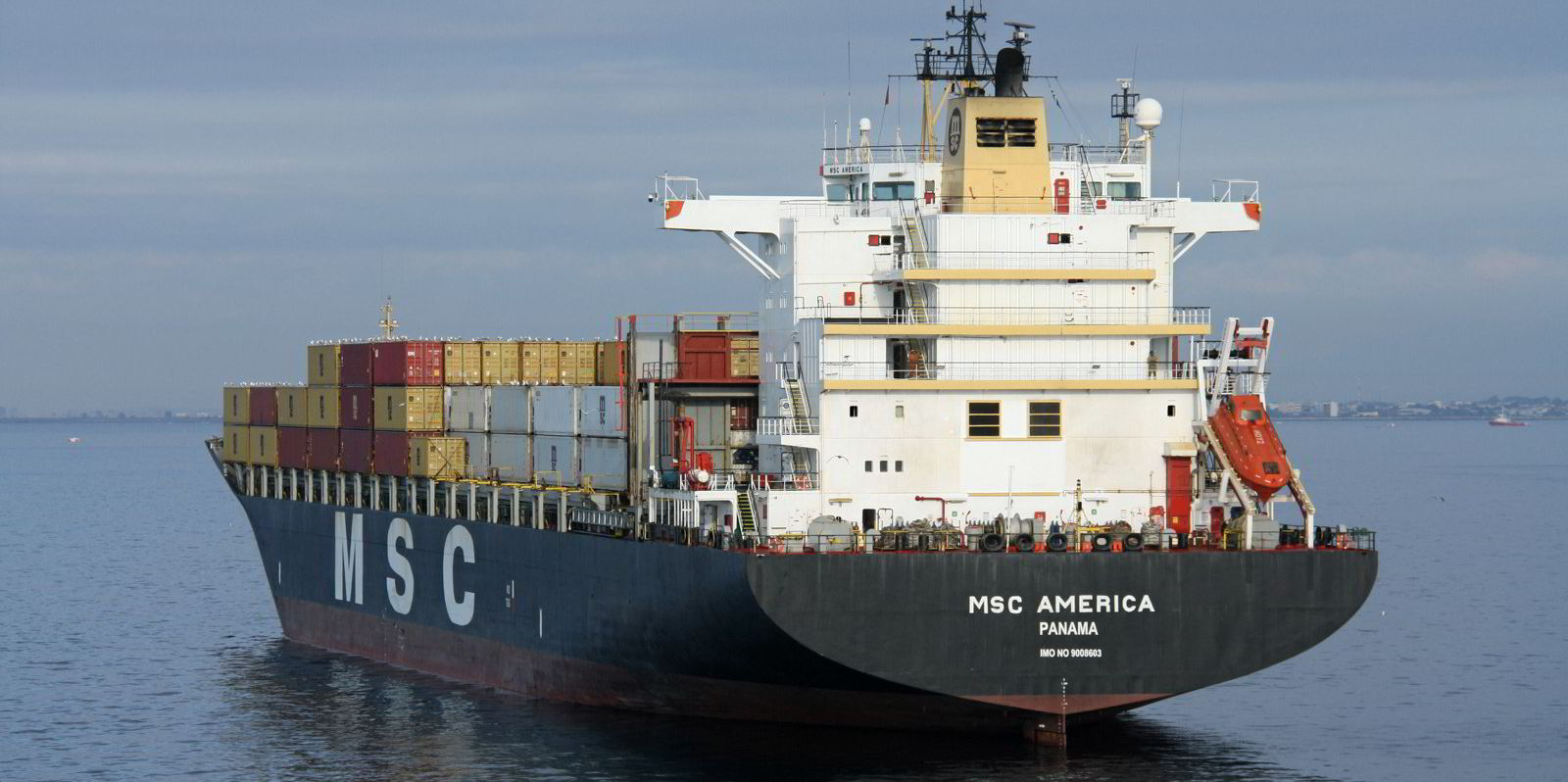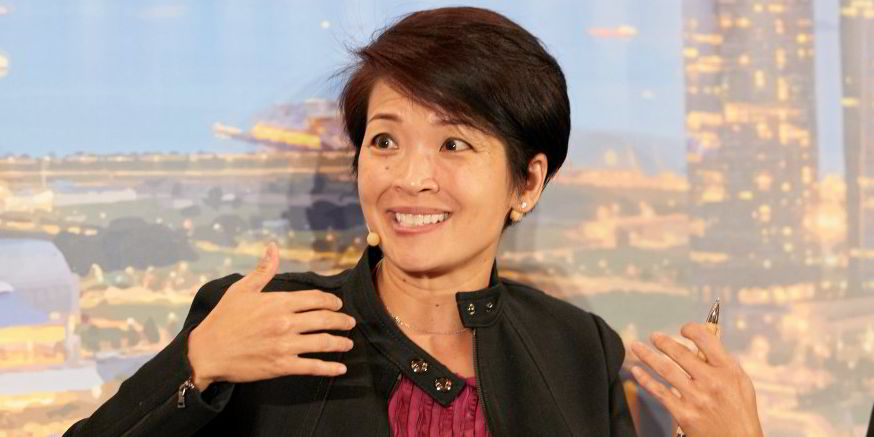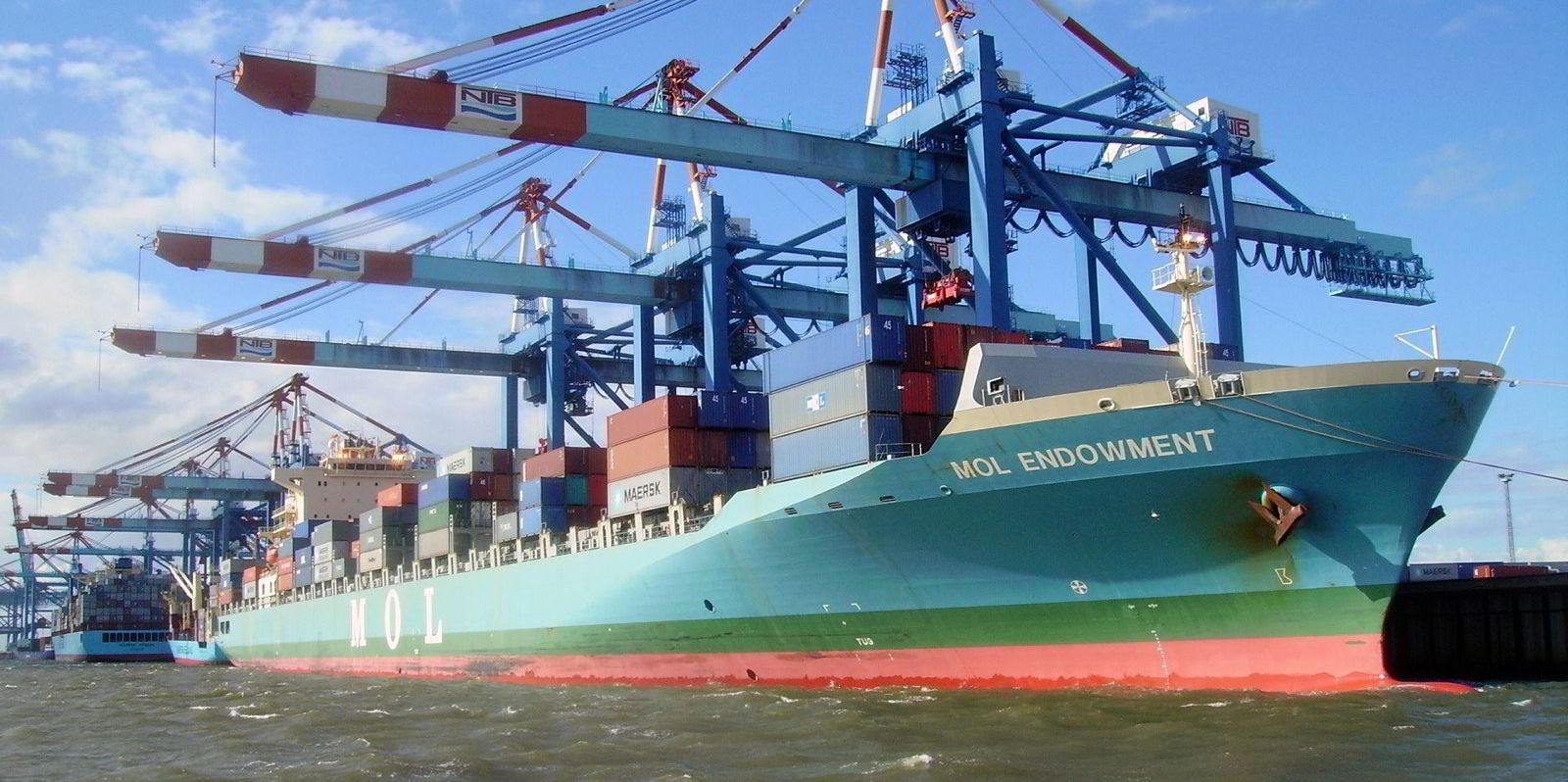The Singapore-based Global Centre for Maritime Decarbonisation (GCMD) has scored a coup with its latest partnership with a shipping heavyweight.
Coming on board is MSC Mediterranean Shipping Company, the liner behemoth that has 730 vessels in operation, along with what it claims is the industry’s largest newbuilding orderbook of energy-efficient container ships.
Under the five-year impact partnership agreement announced on Thursday, MSC will provide a cash contribution towards the GCMD’s pooled resources for pilots and trials, describing the move as part of the strengthening of its commitment towards a collaborative approach to decarbonisation.
MSC will also make “in-kind contributions” through its participation in projects, including access to vessels, operational equipment and other assets, as well as vessel operating data and evaluation reports “so their learnings can help inform GCMD’s future trials”.
Bud Darr, MSC’s executive vice president for maritime policy & government affairs, said: “We are committed to helping to tackle climate change, and in GCMD we believe we have found an excellent partner to help drive the green transition in our sector.
“We look forward to exchanging ideas, information and access to our substantial expertise and assets, to help accelerate progress towards the net zero future we all aspire to.”
Launched in August 2021 with funding from the Maritime & Port Authority of Singapore and six founding partners — BHP, BW, DNV Foundation, Eastern Pacific Shipping, Ocean Network Express and Sembcorp Marine — the centre has since recruited 15 other strategic, impact, coalition and knowledge partners covering a wide range of sectors.
Welcoming MSC to the fold, GCMD chief executive Professor Lynn Loo said the organisation is now in a stronger position to drive decarbonisation solutions across the industry.
“Despite current economic uncertainties, decarbonising shipping will need liners — who are closest to customers willing to pay a green premium — to make hard commitments for the industry to progress towards IMO’s 2030 and 2050 goals,” she said.
The GCMD’s current projects focus on ammonia as a marine fuel, biofuels and carbon capture.





